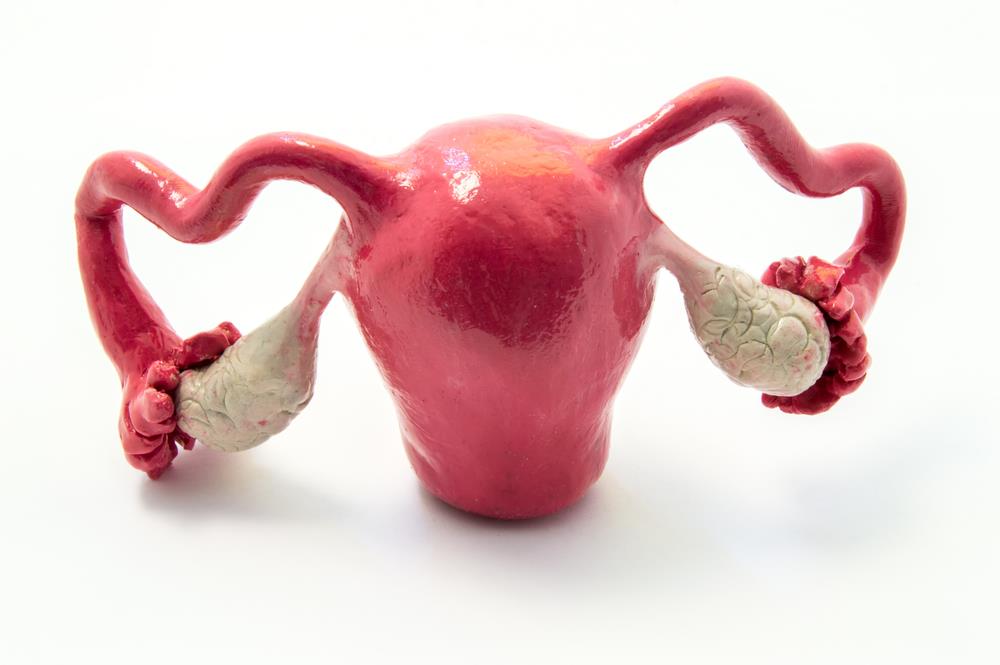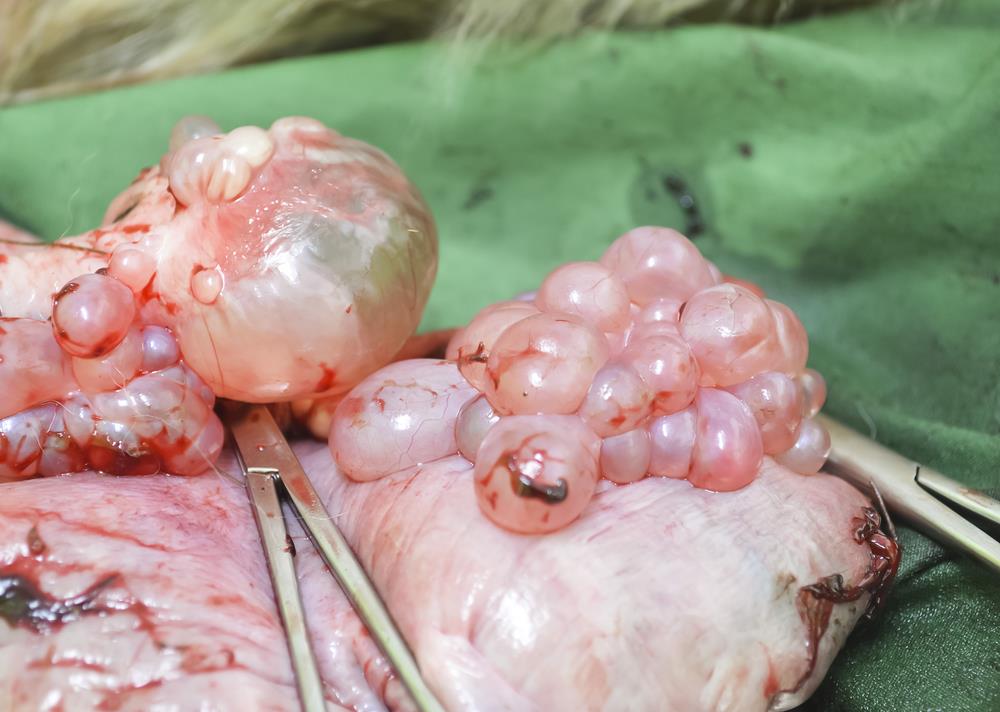The human menstrual cycle normally lasts for the duration of three to seven days; the cycle repeats after 21 to 32 days on average. The physiology of every female is not alike; you may differ in the length of the menstrual cycle every month. Sometimes it may take more days and sometimes there is no reason of reduction in it.
Sometimes it happens that you get a bleeding any time before a menstrual cycle or even after the completion of the menstrual cycle, it is unexpected, in this case, keep the record of whether it is a spotting or a regular menstrual discharge. The regular menstrual discharge along with considerable bleeding is a menstruation. All you can do is to keep a pad and expect it to soak for few hours, keep in mind that the blood for menstrual flow is bright red in color with cellular debris and break down of uterine walls. In case if the pad is not soaked, it might be called spotting. Under any condition, sanitary pads are needed to ensure that the clothing is safe from stains. If you experience dark brown or red discharge, it mostly is due to spotting. Spotting is also more likely to occur during pregnancy though it is the common problem in initial months where fetus takes times to embed itself in the uterine walls.
Contents
Routine Cycle of Healthy Menstruation:
Under normal circumstances, the adults usually get a cycle with a length of 21 to 35 days while if you are a teenager, you can expect the length of cycle to be 21 to 45 days. It is important for females to keep a record of a monthly cycle so that they know whether it is normal or not. The females getting shorter cycles all of the sudden could be due to some reasons like:
- Overactive thyroid gland functioning referred as hyperthyroidism.
- Near to the age of menopause (the menopause age is different in all females).
- Puberty or adolescence
- The Presence of cyst or fibroid uterus.
- Overwork and stress can also trigger menstruation and can cause a considerable decrease in menstrual flow.
- Too much gain or loss in weight both can cause menstrual imbalance.
- Use of certain birth control methods which alter the hormone level in the blood, like Estrogen and progesterone.
- Certain chronic illness.
- Sexually transmitted infections (STIs) are also reported to be the cause of abnormal bleeding during menstruation.
Recommended Reading :
Risk Factors Involved in Periods After every Two Weeks:
Having two periods in one month is often regarded normal, but there are some risk factors associated with it. For example, if you are prone to fibroids (having a family history of it), or you are near to an age of menopause, you are at increased risk of experiencing two periods in one month.
When to see your doctor ?
As discussed earlier, it is not abnormal to get periods every two weeks, but sometimes you may need to consult your health care provider:
- Sharp stabbing pelvic pain which causes discomfort in walking, wait for a couple of days, if it persists, you need to seek medical attention.
- Heavy discharge during menstrual periods which may lead to enormous loss of blood and can make you anemic.
- More and frequent urination which can be a sign of urinary tract infection and is likely to cause bleeding.
- Having painful or uncomfortable sexual intercourse.
- Experiencing cramps during menstruation,
- Keep an eye on menstrual flow, sometimes, dark clots which appear can be a sign of infection or something serious in the uterus.

Associated Complications Period Lasting 2 Weeks:
If you are experiencing a deviation in menstrual cycle from the normal and for no evident reason you are getting periods every two weeks, this can be an alarm of some underlying diseases and you need to see a doctor if the abnormality in periods is accompanied by factors such as:
More bleeding can cause anemia, if this occurs, it can be due to iron deficiency in the blood. You need to seek advice from a doctor regarding it. Doctor will check the iron level in the blood and hemoglobin, the decline in both is not a good sign, and a doctor will advise iron rich medicines for the increased hemoglobin production.
Having a low level of iron in the blood or low hemoglobin can be due to dietary imbalance or some other factors. Anemia can result in certain medical conditions like fatigue (you may feel tired even on slight activity). It is therefore advised to take these things seriously and consult a doctor. Sometimes, if you are suffering from clotting disorders like low platelet count, you can also suffer from heavy bleeding which in turn makes you anemic. If you experience the following symptoms followed by heavy menstrual flow, this may be a sign of anemia (deficiency of red blood cells in the body). The symptoms of anemia include fatigue, headaches, weakness, dizziness, breathlessness or having difficulty in breathing, irregular heartbeat or heart palpitations. Hence if you experience such symptoms along with two periods in one month, you must see a doctor.

Treatment For Two Teriods In One Month:
The underlying cause will determine the treatment needed by you. There are some females who naturally have shorter cycles, or case in which you have just started getting periods, no medical treatment might be required. For bleeding which can cause anemia, the doctor is likely to advice iron supplements. Iron supplements will rule out the risk of anemia after periods.
If you are using birth control measures and experiencing heavy bleeding, you can speak to your doctor. In this case, your doctor might change the control measure being used by you. Hormonal imbalance is one of the main causes of getting periods every two weeks.
Recommended Reading :
- Pinkish Brown discharge Spotting while on birth control
- Concerns regarding thick white discharge before period
Conditions Which are Likely to Cause Frequent Period Lasting 2 Weeks :
There are some conditions which are likely to cause the onset of periods every two weeks, here we are discussing these conditions in details and also the possible treatments which doctors might recommend.
-
Hypothyroidism:
It means the thyroid glands in the body are not working well, they are underactive and they are producing less
thyroxin. The lower amount of thyroxin in the blood can also cause menstrual imbalance. Under this condition, doctor will prescribe thyroid hormone replacement therapy which is generally administered orally.

-
Aging or menopause:
If you are near to the age of menopause, your health care provider may prescribe estrogen replacement therapy or
hormone replacement therapy and that too is administered orally. This hormone replacement therapy can effectively regulate menstrual cycle as the menopause progresses, they disappear slowly. Keep in mind that the age of menopause is variable for every human female depending on environmental and genetic factors.

-
Cystic fibrosis:
If you are suffering from cysts inside urine and these cysts are causing menstrual imbalance, some treatments which doctor might recommend include:
- Intra-uterine device or IUD is helpful in relieving heavy menstrual flow; it will not however cause the shrinkage of fibroids.
- While you are inside MRI scanner, you can be recommended MRI guided surgery; this surgery is non-invasive type and can be used effectively to remove cyst or fibroids. This is an easy method and is mostly recommended provided the cyst is not too big.
- A minimal invasive surgical procedure includes uterine artery embolization, the purpose of it is to block the flow of blood to a uterus, and as a result, the cyst or fibroid will shrink and decay.
- Sometimes, depending on the severity of fibrosis; surgical invasion is vital, myomectomy or hysterectomy is done to remove the uterus permanently.
- Gonadotropin producing hormone agonists can also be helpful in the treatment of fibrosis; they function by blocking estrogen or progesterone and as a result, the fibrosis stop growing, rather it will ultimately shrink. This treatment is also given before surgical invasion.
Tips to Avoid Menstrual Imbalance:
Here are some useful measures which you can adapt to overcome the menstrual imbalance issues:
- A hhealthy lifestyle, exercisee, and walk are helpful for overall health and fitness. Stay stress-free as much as you can.
- Adequate sleep and balance diet.
- Too much gain or loss in weight contribute equally to menstrual imbalance and can cause periods every two weeks.
- Certain birth control measures cause hormonal imbalance in the body and can directly alter menstrual cycle. You can speak to a doctor for the best-suited birth control program for you.
- Keep the sanitary napkins hygienic and stay clean as much as you can and drink plenty of water.

Related Article :











